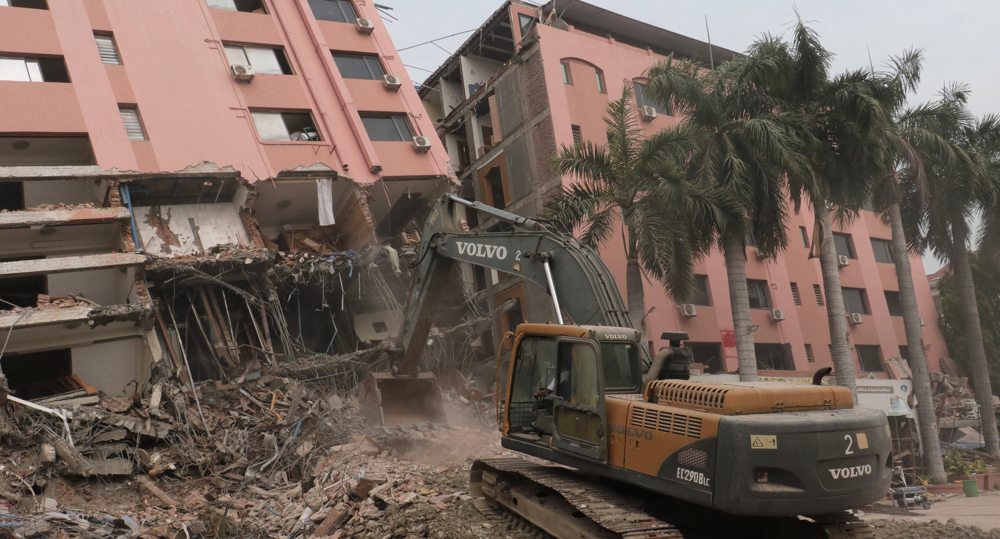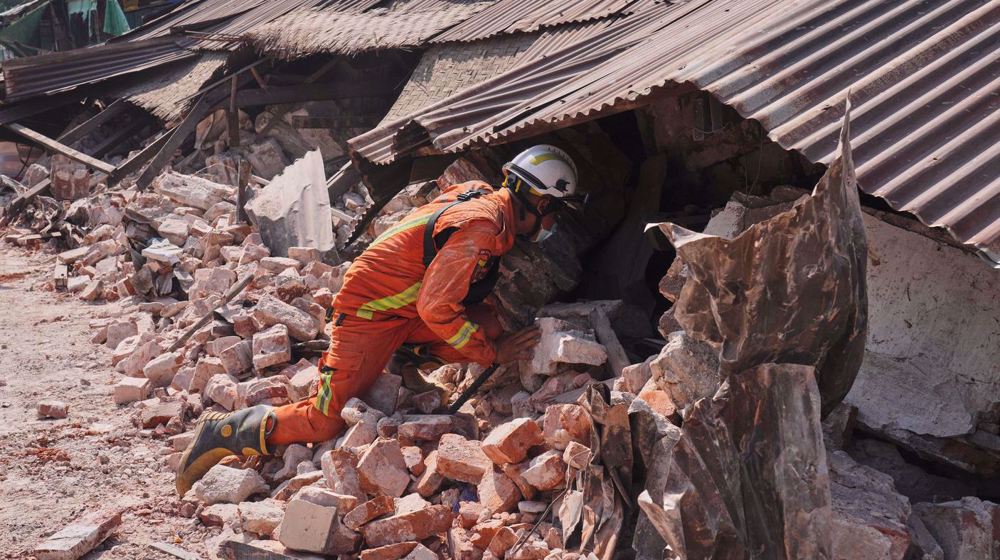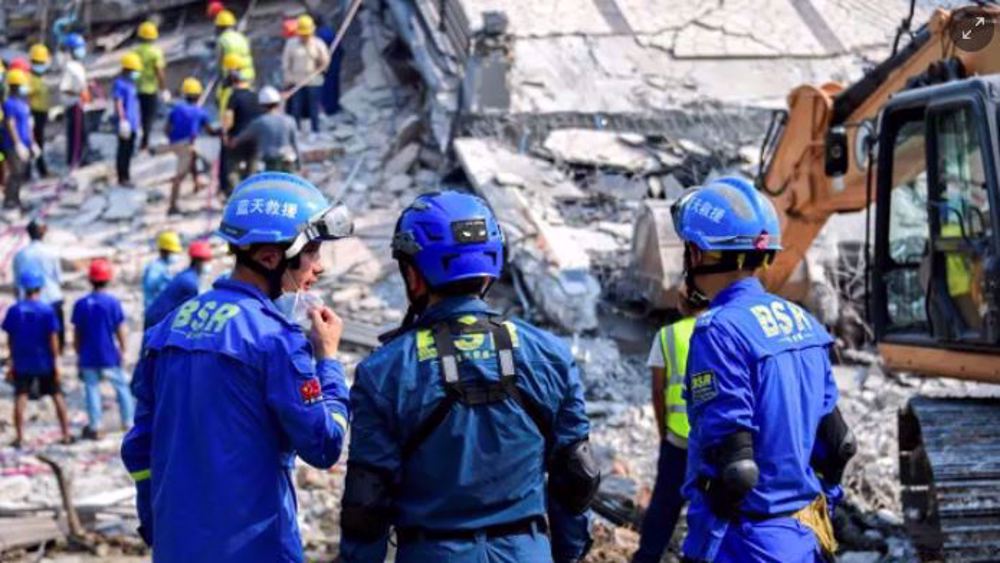Maldives declares state of emergency, nabs top judge
The Maldives’ President Abdulla Yameen has declared a state of emergency, and security forces have arrested a top Supreme Court judge, heightening recent political tensions in the Indian Ocean island country.
Yameen declared the state of emergency late on Monday, and later, on Tuesday, police officers in the archipelago took into custody Chief Justice Abdulla Saeed and another Supreme Court judge, further intensifying a legal confrontation between the president and the country’s top court.
The arrest of Saeed and Supreme Court Judge Ali Hameed was announced by police through a Twitter message citing an “ongoing investigation,” without elaborating.

Fresh tensions erupted last week after President Yameen defied a Supreme Court ruling that revoked terrorism charges against nine leading opposition figures in the Maldives, including the country’s first democratically-elected president, Mohamed Nasheed, who was granted political asylum by Britain after being allowed to travel there for medical treatment while still serving a prison term.
The court also ordered the release from jail of opposition figures, six of whom are being held in the country’s main jail on a lightly inhabited island.
“The President has been compelled to declare a state of emergency due to the risk currently posed to national security,” said a statement issued by the presidential office on Monday. “Implementation of the Supreme Court ruling is — in its current form — incompatible with maintenance of public safety.”

In its ruling last Thursday, the Supreme Court said it found that prosecutors and judges had been influenced “to conduct politically motivated investigations” into the allegations leveled against Nasheed, former vice president Ahmed Adeeb, and the other opposition figures.
While the court ordered fresh probes and trials to be conducted, it did not specify the nature of the political influence, leaving critics questioning the top court’s potential political inclinations.
The ruling has energized an opposition that hopes Nasheed — still in exile — will be allowed to return home to run against Yameen in a presidential election due in October.
The Maldives’ police forces further arrested another former president, Maumoon Abdul Gayoom — who is also Yameen’s half-brother — as well as his son-in-law at his residence.
Gayoom, who is now in the opposition camp, ruled the tiny nation for 30 years until 2008. Gayoom’s son, Faris, is also one of the jailed opposition figures ordered freed by the court.
Gayoom posted a recorded video on social media, claiming he was being taken to the prison island of Dhoonidhoo, “I have not committed any crime. This arrest is unlawful. I will remain strong, and I ask the beloved people to remain strong.”
Yameen, who has been serving as president since 2013, faces rising political pressure at home to comply with the high court’s order.
Moreover, China, Australia, the United States, and India have issued travel advisories for the Maldives, a country of 400,000 people best known as a beach paradise for tourists, who provide most of its foreign currency revenue.
The Maldives is made up of 26 coral atolls and 1,192 islands. Politics centers on the tiny but densely-populated capital, Male.
The country has experienced political unrest since Nasheed was forced to quit amid a mutiny by police in 2012.

The following year, Yameen defeated Nasheed in an election that Nasheed’s supporters alleged was rigged. Nasheed was jailed on terrorism charges but was allowed to go to Britain for medical treatment in January 2016. He never returned.
“This deliberate refusal by the government to uphold the constitution further destabilizes the Maldives and wider Indian Ocean security,” Nasheed said in a Monday statement.
The political turmoil comes during the peak tourism season in the Maldives. Tourism brought in 2.7 billion dollars in revenue for the country in 2016.

Myanmar quake death toll passes 3,300: State media

Death toll from Myanmar quake rises to over 3,085

WHO warns Myanmar quake ‘top-level emergency’, seeks urgent funding
Iran’s aluminum output down by nearly 5% in year to March
Missiles fired from Yemen triggers sirens in Israeli-occupied territories, closes airport
Iran condemns terror attack in southeast that killed 8 Pakistani nationals
Deir al-Balah massacre: Israeli airstrikes killed 6 brothers at once
Iran currency surges on positive news from Iran-US talks
VIDEO | Spain’s Seville hosts concert in solidarity with Palestinians
VIDEO | Press TV's news headlines
Saudi Arabia, US to sign agreement on civil nuclear program: Energy secretary










 This makes it easy to access the Press TV website
This makes it easy to access the Press TV website